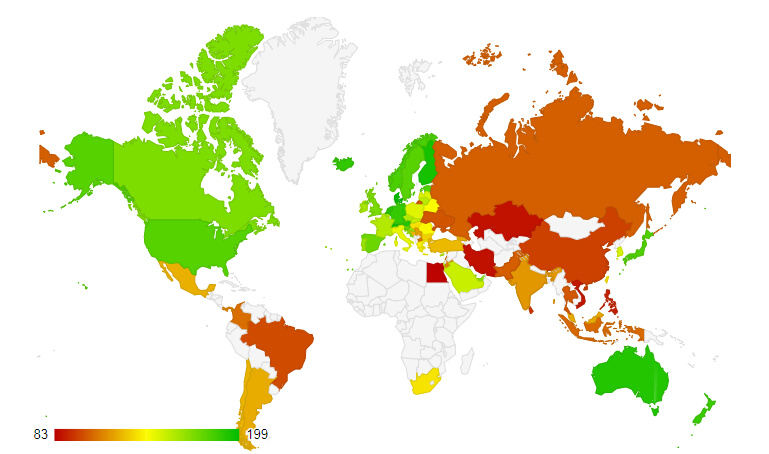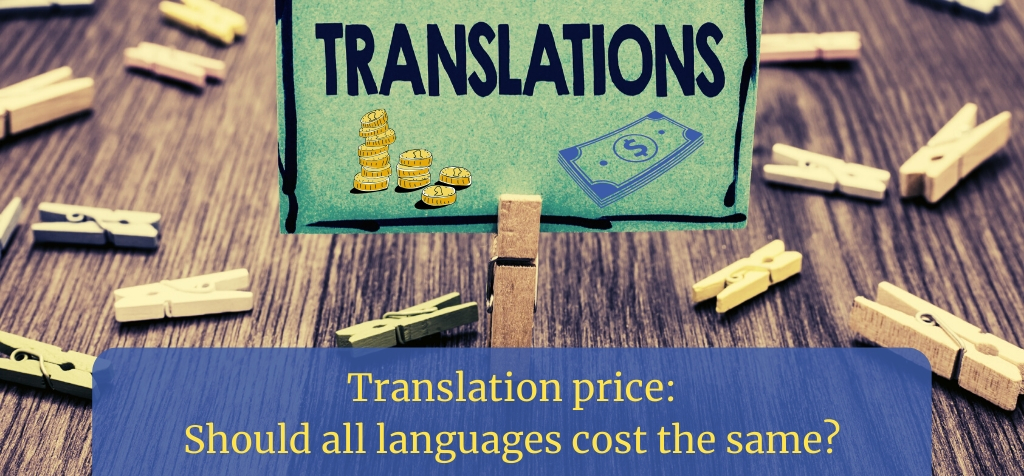Translation price: Should all languages cost the same?
If you have ever had anything translated for yourself or in the line of your work, you know that some languages have a higher translation price than others. Some are very cheap, others more expensive and there even are some which definitely look overpriced. Sometimes they are divided into groups – Group 1, Group 2 and so on. If we think about it, many questions pop right out:
- Why is this so?
- How do we group the languages?
- Who sets the price?
Frankly, this sounds very complicated and maybe unneccesary. Aren’t we all using languages for similar purposes? To communicate, to express our thoughts and feelings, to create relationships, to learn and teach… As a part of human life language has an almost universal role for all of us. And this makes us ask ourselves: Should all languages cost the same? Let’s get deeper by exploring some of the factors affecting translation price.
Translation price depends on supply and demand
Of course, this the most obvious reason for the different prices for translation. As we know from basic economics, price is highly affected by supply and demand. If there is a high supply of professional translators for a language pair, competition lowers and stabilizes the average price. If there are not enough language experts for a given language, high demand will result in a higher translation price.
This is the main reason why the rates of the most popular language pairs are settled to a stable and affordable value. English to French, Spanish to English, French to Italian, English to German – these language pairs are translated in the billions of words every day. With so many language professionals and a constant demand it’s very easy to find a suitable and affordable translator or LSP. But think about Burmese to Lithuanian or Bulgarian to Inuktitut. The demand is probably extremely low, and it’s hard to imagine someone who knows them both, isn’t it? It’s not easy to figure out the right price for such a rare skill, but you can’t expect it to be cheap.
Complex languages have a higher translation price
A few native-speaking translators is a problem for the source language suply. But as we know, translation involves two languages. If the source language is a complex one, it surely will be harder to find experienced translators. And consequently, due to the greater effort required to learn it, the price will be higher. It’s the same reason why more skilled jobs are generally better paid. The language is just harder to learn, it requires more time, money and dedication. So it’s only fair that these efforts are justly compensated.

A color-coded world map illustrating the quality of life in different countries.
Photo: Numbeo.com
Countries have different standards of living
Another factor that has a high impact on translation price is the local living standard or quality of life index. At countries with higher taxes and overall cost of living, it’s expected that all services would be more expensive. And this includes native translation into the respective language – regardless of whether we talk about freelancers or translation companies. On the other hand, in countries with lower standards of living, native translation rates are generally lower. Companies pay lower corporate taxes and lower salaries, consumer goods are cheaper. Overall in those countries it requires less income to have a certain standard of living.
Translation price is all about ease of access
Looking at the real factors that affect translation price, it is easier to see the logic behind the differences in translation rates. In a way, they are a measure of how easy or difficult the conversion is between two particular languages. In other words, how far away one culture is from another. The longer the journey, the higher the costs. It does make more sense now, doesn’t it?
At TransGlobe International we work every day to offer our Clients professional language services at an affordable price. Get in touch with us at hello@transglobeinternational.com to learn more or click the button below to receive a free quote!

